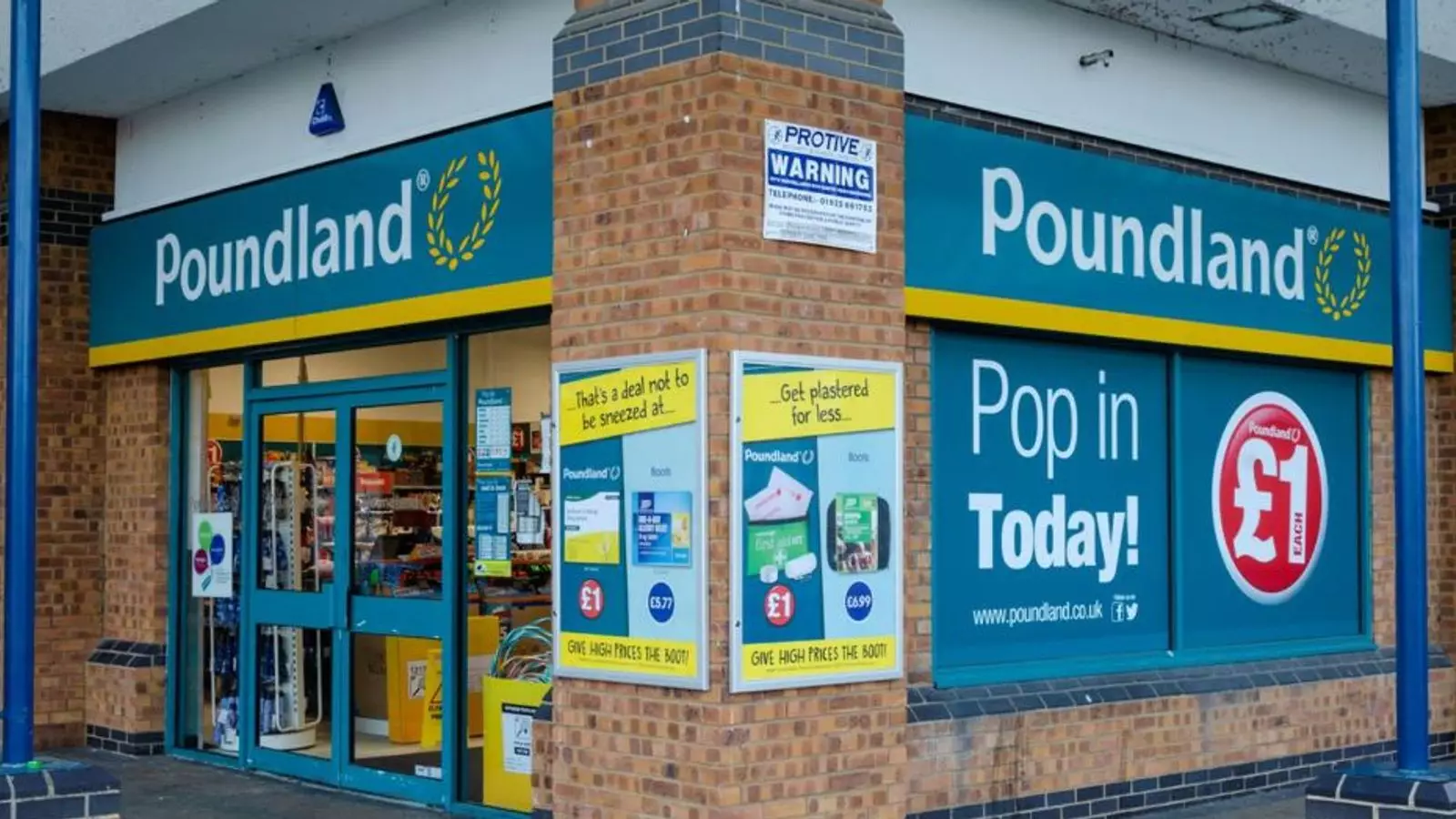Poundland, a significant player in the UK discount retail scene, is currently embroiled in a multifaceted crisis that has raised alarms about its future viability. Owned by the Pepco Group since 2016, the retailer has faced a steady decline in sales, prompting management to engage external consultants in an attempt to salvage its operations. This alarming trend not only questions the ownership structure but also calls for a reevaluation of the brand’s market strategy in an increasingly competitive landscape.
The discount retailer, which boasts an extensive network of 825 stores across the UK, has been grappling with evolving consumer behaviors and economic pressures that have led to a notable 7.3% decline in like-for-like sales during the crucial Christmas trading period. The financial landscape of retail has shifted dramatically, pressuring even governmental giants and compelling them to revisit their operational frameworks.
To navigate these turbulent waters, Pepco Group has enlisted the expertise of AlixPartners, a consulting firm well-versed in corporate restructuring. Their involvement raises the stakes for Poundland. While reports indicate that no decisive actions have been taken, such as store closures or business sales, the uncertainty surrounding the chain’s future looms large. A company voluntary arrangement or restructuring is on the table, showcasing the gravity of the situation.
The decision to collaborate with AlixPartners underscores the brand’s acknowledgment of a need for immediate reform. Thus, the focus now appears to be twofold: revitalizing Poundland’s cash flow and sharpening its customer offerings. The insights provided by these consultants will be pivotal in shaping an actionable plan that can adapt to a challenging retail environment.
Poundland is not alone in facing decline; competition in the discount retail sector is heating up, with rivals like Home Bargains, B&M, and major supermarket chains enhancing their presence in the market. This competitive dynamic exacerbates the issues Poundland faces, making effective differentiation and engagement with customers essential.
In their trading statements, Pepco Group identified a “difficult sales environment” as a contextual backdrop for Poundland’s challenges. It further acknowledged pressures on margins and increased operating costs, criers of a business environment where retaining customer loyalty is ever more burdensome. Dynamics such as inflation and shifting consumer preferences are redefining retail metrics, demanding adaptability from Poundland.
Future Outlook: Revitalization and Strategic Initiatives
Despite the hurdles, the Pepco Group has expressed optimism, suggesting that the most challenging quarter for Poundland is now behind it. This stance rests on the hope that adjustments made to its clothing and general merchandise ranges will yield positive results moving forward. The management’s commitment to halting expansion in store numbers reflects a focus on consolidating existing operations rather than spreading resources thin.
As the company engages in comprehensive assessments across its verticals, it becomes imperative to revitalize its core strengths and revamp its value proposition. Expanding the range of fast-moving consumer goods (FMCGs) and general merchandise products at their iconic £1 price point has been one strategy employed to enhance customer appeal. The efficacy of such strategies will need to be evaluated meticulously.
CEO Stephan Borchert has indicated potential adaptations for the business during an upcoming capital markets day meeting in Poland. This forum will likely be crucial for outlining future strategies, as well as garnering investor confidence amid the turmoil. By considering all “strategic options” for improving performance, the company aims to address immediate challenges while laying a foundation for sustainable growth.
In understanding the situation at Poundland, it is clear that the necessity for strategic reorientation cannot be overstated. The retail landscape is not static, and those like Poundland that fail to embrace change risk becoming relics of the past. While the pathway ahead remains fraught with difficulties, proactive restructuring and innovation can potentially restore the brand’s stature and relevance in a constantly shifting market.


Leave a Reply